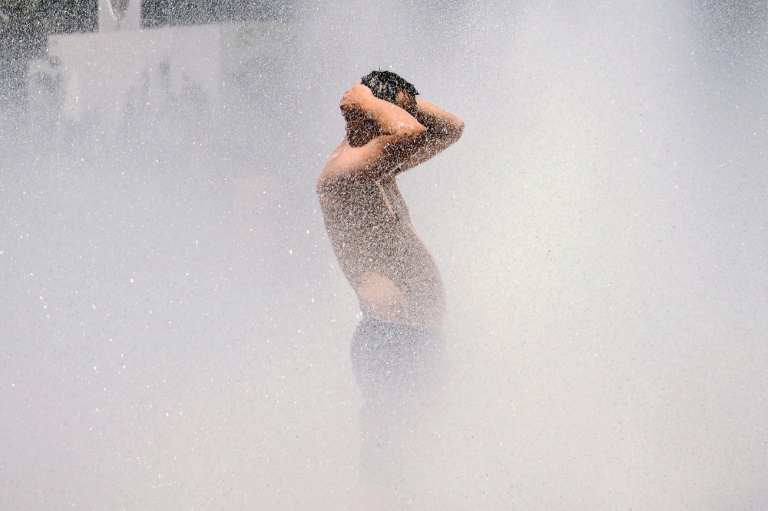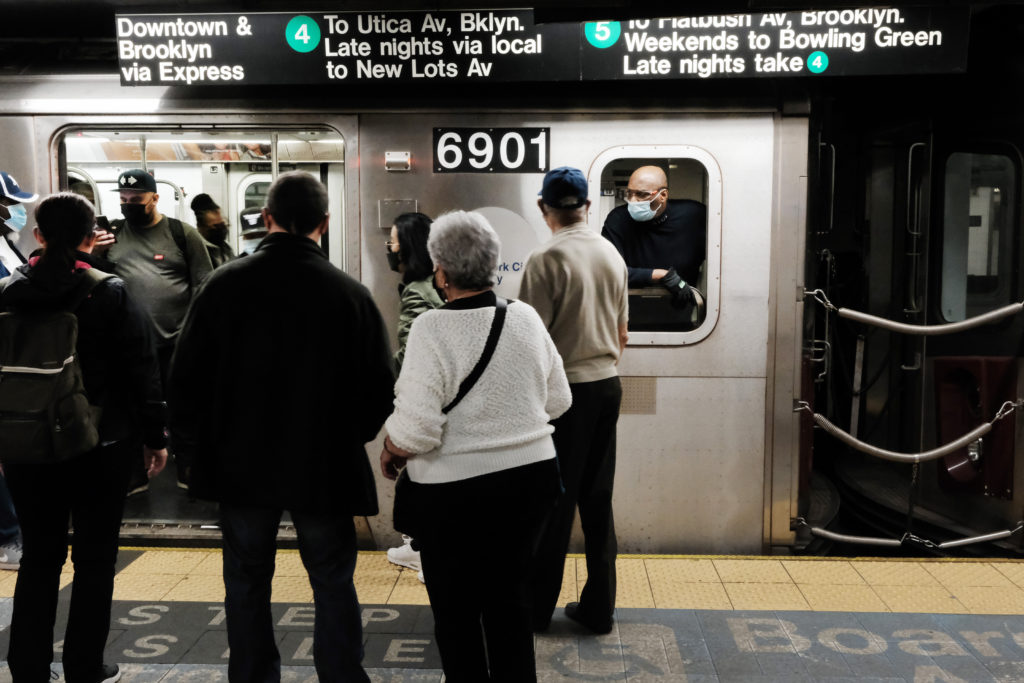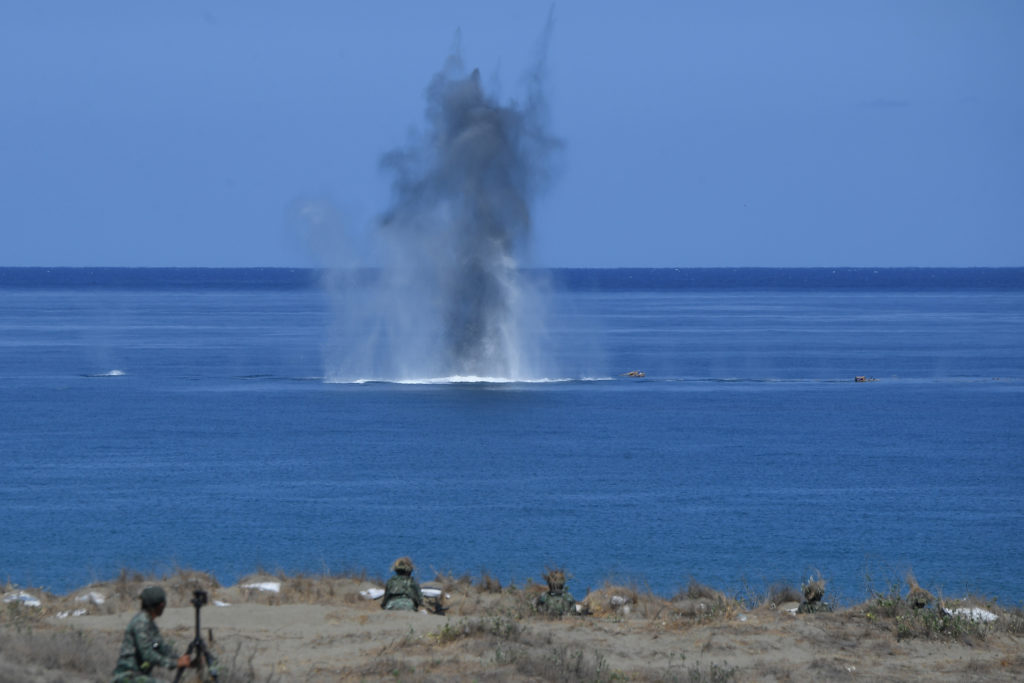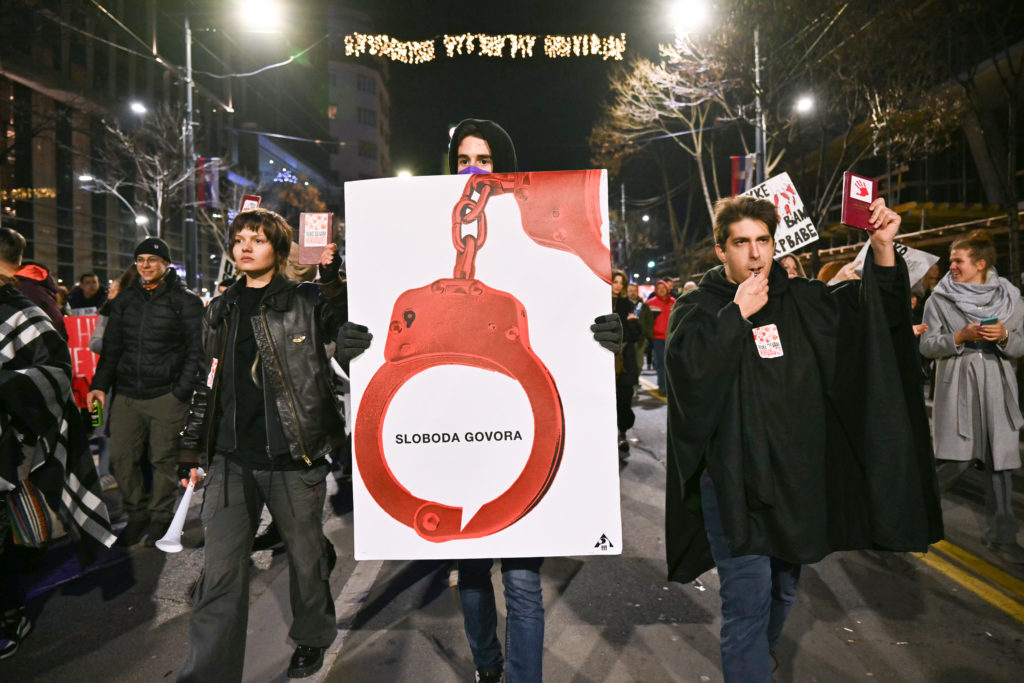Schools and Covid-19 vaccination centers closed Monday while community cooling centers opened as western Canada and parts of the western United States baked in an unprecedented heat wave that broke several temperature records.
Lytton in British Columbia broke the record for Canada’s all-time high Monday, with a temperature of 118 degrees Fahrenheit (47.9 degrees Celsius), just one day after the village set the previous record at 116 degrees.
Temperatures in the US Pacific Northwest cities of Portland, Oregon and Seattle, Washington reached levels not seen since record-keeping began in the 1940s: 115 degrees in Portland and 108 in Seattle, according to the National Weather Service.
“It’s a desert heat — very dry and hot,” David Phillips, a senior climatologist for Environment Canada, told AFP.
“We are the second coldest country in the world and the snowiest,” he said. “We often see cold snaps and blizzards but not often do we talk about hot weather like this.”
“Dubai would be cooler than what we’re seeing now.”
The extreme heat, combined with intense drought, created the perfect conditions for several fires to break out over the weekend, and one blaze on the California-Oregon border had already burned some 600 hectares (1,500 acres) by Monday morning.
Climate change is causing record-setting temperatures to become more frequent. Globally, the decade to 2019 was the hottest recorded, and the five hottest years have all occurred within the last five years.
“Normally it’s probably like, maybe 60, 70 degrees is a great day — everybody is outside in shorts and T-shirts — but this is… ridiculous,” one Seattle resident told AFP Sunday, when the mercury hit 104 Fahrenheit. “I feel like I’m in the desert or something.”
Amazon opened part of its Seattle headquarters to the public as a cooling-off location Monday, with space available for 1,000 people.
Most homes in the city — usually known for its cool and wet climate — do not have air conditioning.
Residents in Portland also found refuge in cooling centers set up by local authorities, resting on mattresses and folding chairs.
In nearby Eugene, organizers were forced to postpone the final day of the US Olympic track and field trials, moving afternoon events to the evening.
– ‘Prolonged, dangerous and historic’ –
Across the border in Canada, stores sold out of portable air conditioners and fans, while cities opened emergency cooling centers and outreach workers handed out bottles of water and hats as more than 160 local heat records were set, including in the ski resort town of Whistler.
Several Covid-19 vaccination clinics were canceled and schools announced they would close due to the extreme heat.
In Vancouver, officials set up temporary water fountains and misting stations on street corners, while forest and fisheries services warned of extreme wildfire risks and low lake and river water levels impacting fish.
Beaches and pools were packed while emergency services, overwhelmed with calls, warned of delays for ambulances.
Several people without cooling at home told AFP they slept overnight in their air conditioned cars or in underground parking garages, some with their pets.
Others shared instructions on how to assemble makeshift chillers using a fan attached to a box filled with bags of ice.
Environment Canada issued alerts for British Columbia, Alberta, and parts of Saskatchewan, Manitoba, Yukon and the Northwest Territories, saying the “prolonged, dangerous and historic heat wave will persist through this week.”
The NWS issued a similar warning, saying Monday the “dangerous,” “oppressive” and “unprecedented” heat would stick around in the region until midweek.
“Residents are urged to stay in air-conditioned buildings, avoid strenuous outdoor activities, drink plenty of water, and check on family members/neighbors.”
The scorching heat has been blamed on a high-pressure ridge trapping warm air in the region.
This heat dome poses “serious” health concerns, said Phillips, noting the last major heatwave in Canada left nearly 70 people dead in 2018.
“And it’s not just a one-day wonder. It’s a seven-day kind of thing,” he said, with temperatures forecast to reach 47 degrees Celsius (117 Fahrenheit) or higher.
Nick Bond, an atmospheric scientist at the University of Washington, said the freak weather event was not entirely due to climate change, but was exacerbated by it.
“Climate change is a factor here, but definitely a secondary one,” he said.











